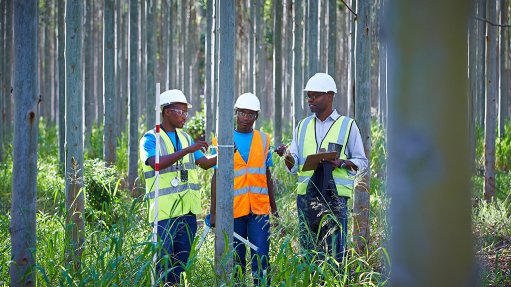Unep calls for more meticulous pesticide, fertiliser management as global demand grows
As global demand for and use of products such as pesticides and fertiliser increases, it is imperative that stakeholders minimise the adverse impacts of these products on human and environmental health, says the United Nations Environment Programme (Unep).
In its ‘Environmental and Health Impacts of Pesticides and Fertilisers and Ways to Minimise Them’ report, Unep outlines six priority transformative actions to strengthen pesticide and fertiliser management, including to fundamentally change crop management through ecosystem-based approaches.
The environmental authority also suggests incentivising healthy and sustainable consumer choices, promoting circularity and resource efficiency, using economic instruments to create a level playing field for greener products, adopting integrated and lifecycle approaches for sound pesticide and fertiliser management, and strengthening standards and corporate policies for sustainable supply chain management.
These actions will require greater development of low-risk pesticides and bioprotectants, as well as more training of stakeholders involved in fertiliser and nutrient management.
Unep expects the world’s population to grow from 7.8-billion people in 2020 to nearly ten-billion people by 2050, with demand for food to grow by 60%, demand for meat production to grow by 70% and demand for aquaculture and dairy production to grow by 90% and 55%, respectively, over the period.
The pesticides and fertilisers market is expanding steadily. By 2016 about 4.1-million tons of pesticide active ingredients were used globally, which was twice the volume applied in 1990.
The total value of the pesticides market was estimated at about $65-billion in 2018.
This market is forecast to reach about $71-billion by 2025, having increased at a compound annual growth rate of 3.7% between 2020 and 2025.
While pesticides help to reduce crop loss, lower the prevalence of human vector-borne diseases, increase the shelf life of agricultural commodities, increase livestock yields and provide better protection of wooden structures, numerous studies link the exposure of pesticides to adverse human health effects, including effects on reproduction and immune and nervous systems.
Unep says there remain gaps in knowledge about the adverse impacts of pesticides, as well as fertiliser. It is for this reason that Unep collaborated with the Food and Agriculture Organisation and the World Health Organisation to present an assessment of both technical and policy-related information on pesticides and fertiliser.
The report finds that pesticides cause both acute and long-term health impacts, especially when used excessively or inefficiently, and damage to the environment in the form of drinking water contamination and eutrophication of freshwater systems. About 385-million cases of non-fatal unintentional pesticide poisonings are estimated to occur every year, with 11 000 deaths reported from pesticide poisoning.
Unep suggests that policymakers can strengthen the control of pesticide distribution, scale up development of international pesticide evaluations, strengthen post-registration monitoring of pesticides and their effects, prioritise development of low-risk pesticides and bioprotectants, address the trade in substandard or counterfeit pesticides, and support the adoption of extended producer responsibility by all pesticide manufacturers and traders.
The environmental authority reports the way pesticides and fertilisers are used differs between smallholder and industrial farms and therefore requires different management practices.
While international instruments have played a role in reducing some adverse environmental and health impacts related to the two products, the conventions cover a limited number of chemicals. Unep says both national and regional legislation, policies and collaborative platforms are crucial for effective pesticide and fertiliser use and management.
There are many examples of adverse impacts having been reduced through action addressing pesticides or fertilisers.
For example, in countries with strict regulations, concentrations of organochlorine pesticides in the environment are decreasing and acute environmental and health effects caused by highly toxic organophosphate and carbamate pesticides have declined.
It will also help governments to lower greenhouse-gas emissions if more organic fertiliser and more sustainable pesticides are used.
Overall, Unep says, governments and other stakeholders should enact policies that promote greater dietary reliance on sustainably produced products, and shift to more holistic approaches to address pest pressure and soil fertility issues in agricultural production.
Additionally, a large amount of the fertiliser nutrients used in agriculture are not recycled, creating opportunities to advance circularity through collaborations. Opportunities also exist to progressively internalise the hidden costs of pesticides and fertilise use, to level the economic playing field for greener products and approaches. This goal may be achieved through the use of taxes or charges, or the elimination of certain subsidies.
Stakeholders such as government can also set targets for sourcing organically certified products and have suppliers take a life-cycle approach, as well as enforce pesticide legislation where hazardous practices are occurring.
However, this will need better post-registration monitoring of pesticides and their effects to ensure feedback into the regulatory process.
“The public sector has an important role to play in regulating pesticides and fertilisers, and in putting in place enabling policies and actions to foster transformation. Clear targets and roadmaps developed by specific actor groups such as producers, corporations, research institutions or the public sector can create momentum for results-based action,” Unep concludes.
Comments
Press Office
Announcements
What's On
Subscribe to improve your user experience...
Option 1 (equivalent of R125 a month):
Receive a weekly copy of Creamer Media's Engineering News & Mining Weekly magazine
(print copy for those in South Africa and e-magazine for those outside of South Africa)
Receive daily email newsletters
Access to full search results
Access archive of magazine back copies
Access to Projects in Progress
Access to ONE Research Report of your choice in PDF format
Option 2 (equivalent of R375 a month):
All benefits from Option 1
PLUS
Access to Creamer Media's Research Channel Africa for ALL Research Reports, in PDF format, on various industrial and mining sectors
including Electricity; Water; Energy Transition; Hydrogen; Roads, Rail and Ports; Coal; Gold; Platinum; Battery Metals; etc.
Already a subscriber?
Forgotten your password?
Receive weekly copy of Creamer Media's Engineering News & Mining Weekly magazine (print copy for those in South Africa and e-magazine for those outside of South Africa)
➕
Recieve daily email newsletters
➕
Access to full search results
➕
Access archive of magazine back copies
➕
Access to Projects in Progress
➕
Access to ONE Research Report of your choice in PDF format
RESEARCH CHANNEL AFRICA
R4500 (equivalent of R375 a month)
SUBSCRIBEAll benefits from Option 1
➕
Access to Creamer Media's Research Channel Africa for ALL Research Reports on various industrial and mining sectors, in PDF format, including on:
Electricity
➕
Water
➕
Energy Transition
➕
Hydrogen
➕
Roads, Rail and Ports
➕
Coal
➕
Gold
➕
Platinum
➕
Battery Metals
➕
etc.
Receive all benefits from Option 1 or Option 2 delivered to numerous people at your company
➕
Multiple User names and Passwords for simultaneous log-ins
➕
Intranet integration access to all in your organisation


















